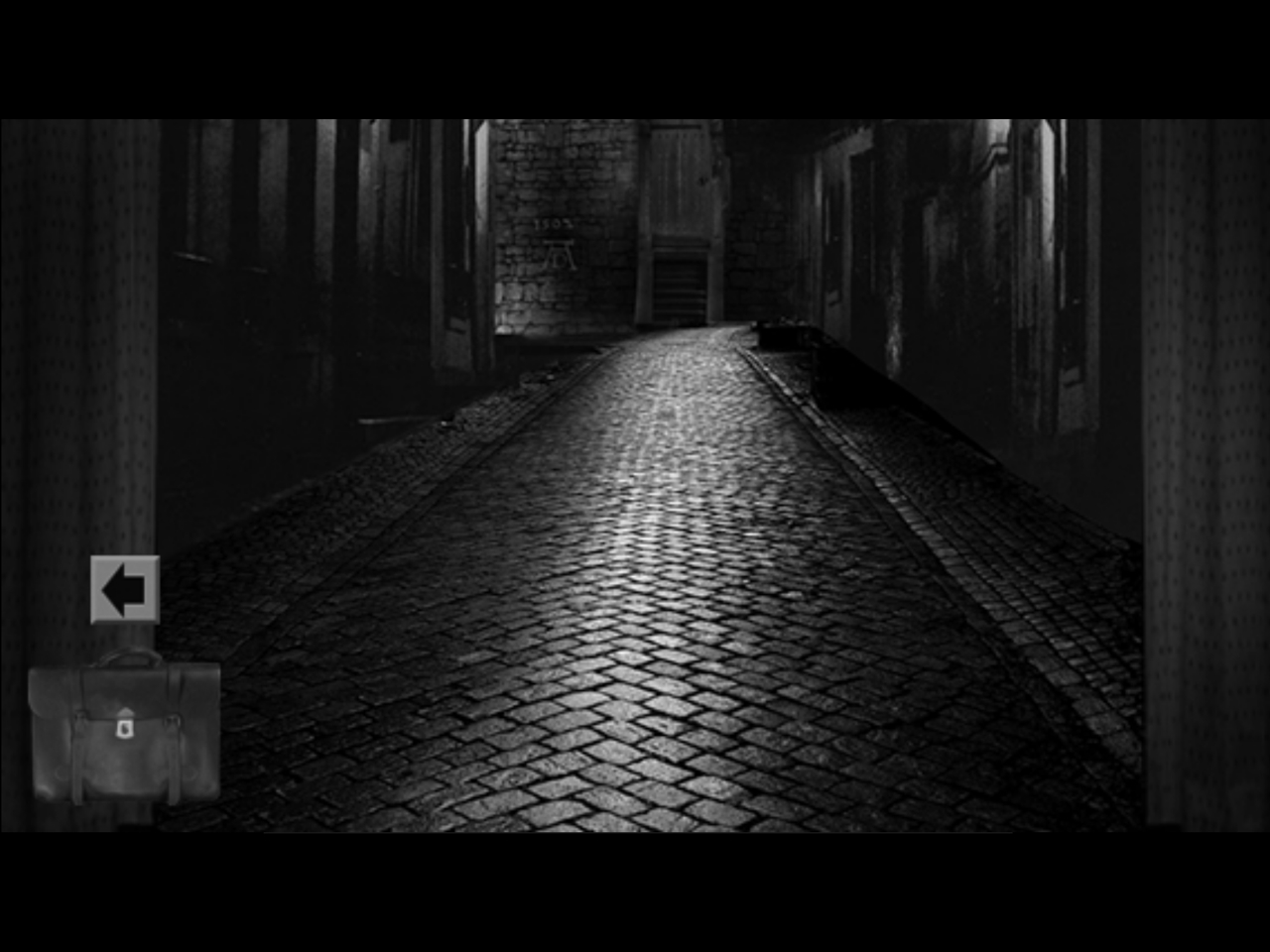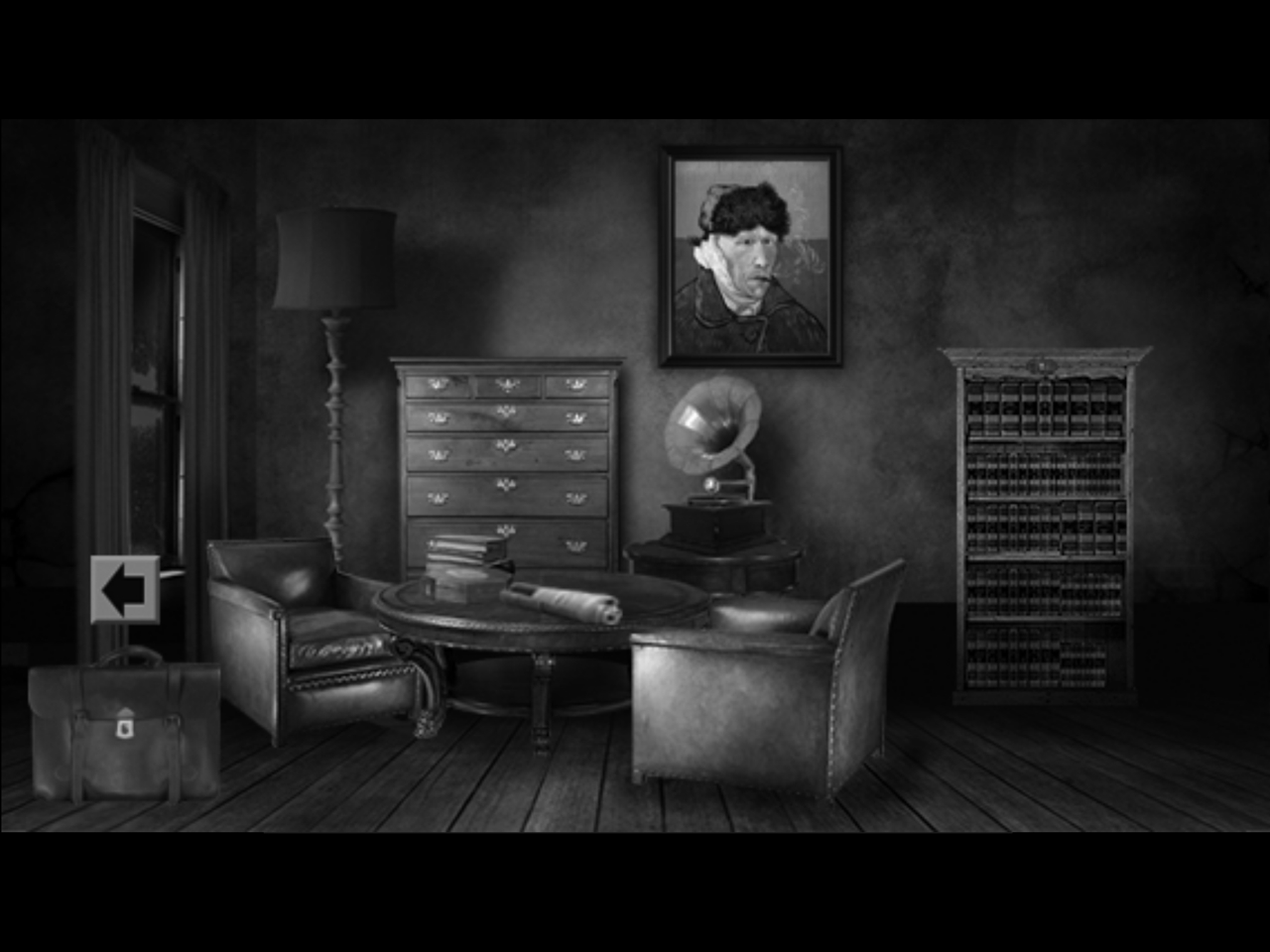![]() When most think of WW2, they think of grainy black-and-white footage of exploding planes and of exhausted soldiers running to their death. That this is the dominant imagery of WW2 is not surprising, of course, since most of us are drawn to the visual spectacle of explosions and destruction. Yet, there was an even more intense aspect of WW2, one that was in a way a war of individuals rather than armies, and that was the spy-against-spy war whose theater consisted of the cities and villages behind enemy lines. It’s in this quiet battlefield that Lexica Games has set its noir-ish adventure game, The Paris Dossier (Free), a relatively-traditional adventure game that is entertaining, especially for those with an interest in cryptography and word puzzles, despite its relative brevity and occasional UI issues.
When most think of WW2, they think of grainy black-and-white footage of exploding planes and of exhausted soldiers running to their death. That this is the dominant imagery of WW2 is not surprising, of course, since most of us are drawn to the visual spectacle of explosions and destruction. Yet, there was an even more intense aspect of WW2, one that was in a way a war of individuals rather than armies, and that was the spy-against-spy war whose theater consisted of the cities and villages behind enemy lines. It’s in this quiet battlefield that Lexica Games has set its noir-ish adventure game, The Paris Dossier (Free), a relatively-traditional adventure game that is entertaining, especially for those with an interest in cryptography and word puzzles, despite its relative brevity and occasional UI issues.
As the title reveals, the game is set in Paris during the early years of German occupation. Historically, the long occupation of France by German troops and its key position as the Allied door to Europe made France the center of many covert operations that strove to set the stage for a successful future invasion. Historical accounts of WW2 Paris are filled with stories of double agents and double crossings and strewn with the bodies of many unfortunate operatives. In The Paris Dossier, you are one of those Allied spies, specifically a Brit with the code name Artemis, who has to follow a lead in order to uncover…well, I won’t tell you because many, including me, hate spoilers, especially in story-centric games.
The story is enjoyable though, perhaps, a little too predictable. You follow clues and leads throughout Paris, exploring various outdoor and indoor locations while trying to unravel the central mystery of the game. What the game has going for it, however, is the lovely black-and-white locations you have to explore whose design really helps the game’s noir aesthetic come to life. It was a clever move by the developers to go with this aesthetic because it really gives the game an edge over many other adventure games on iOS. While the environments you explore are replete with all kinds of objects (as in any adventure game), there’s a distinct lack of life in this version of Paris (you barely see any other people and the streets are almost always deserted and silent). In the beginning, I wasn’t sure i would enjoy this “lifelessness," but it fits the game’s mood because, in a way, it cleverly represents the absolute loneliness of a spy in 1942 Paris (I’m sure this emptiness is partly due to technological limitations, but I’m all for thinking that there’s more to a game than just what the developer intended to do). Where the game really shines is in its music, which primarily consists of a moody trumpet that perfectly complements the game’s stark visuals. It’s a game that really needs a pair of headphones to fully enjoy.
The puzzles are entertaining and, mostly, logical, although there’s a lot of cryptography and code-breaking in the game, which is appropriate for the era and great for lovers of those kinds of puzzles even if it wasn’t exactly my cup of tea. Still, most of the puzzles made sense, and I was able to solve most of them without having to resort to the great hint and answers system that accompanies the game. Incorporating this system was a clever move by the designers, since it makes the game as easy or as challenging as the player wants it to be, but I wish it was more accessible while playing the game (you have to go out to the main Menu and then tap a few times to go into the answers/hint menu, which can be annoying). Speaking of tapping, I had some issues with the game understanding what I was trying to tap on because sometimes the game can’t recognize what layers are on the screen. For instance, while you may be tapping at a pop-up image (for example, the contents of a drawer), the game thinks you are actually tapping at the door that’s behind the pop-up image. Same when you are trying to tap on the Menu button (which appears when you open your inventory) and the game thinks you are tapping at the door behind where the menu button actually is. I also had some issues turning knobs the way I wanted to; you click to rotate left, and occasionally it rotates right. It could be another attempt by Lexica Games to simulate the trembling fingers of a stressed WW2 operative, but I doubt it.
The App Store isn’t barren of good adventure games, as it used to be a few years ago, so gamers who love the genre have plenty of options. Still, with its noir aesthetic and its relatively unusual setting, The Paris Dossier is a nice addition. Its noir aesthetic and cryptography-heavy puzzle mechanics do make it a rather niche title, but it’s one that will please those who play it even though its brevity and occasionally clunky UI don’t work in its favor. Don’t be scared off by its free price because the game isn’t Free to Play but rather Free to Try as the one IAP unlocks the full game.

